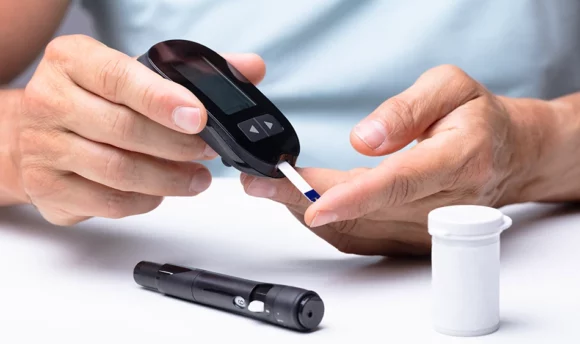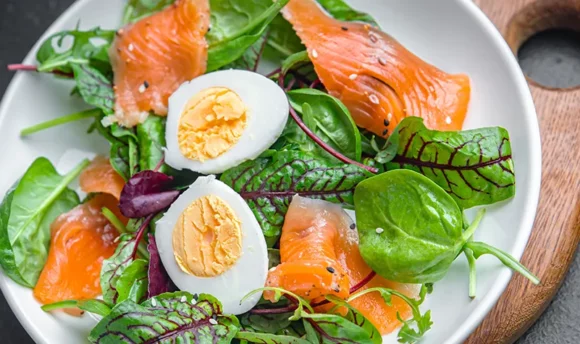Sudden Weight Gain on a Keto Diet: Do I Have to Worry?
So you have been following a keto diet, and up until now, it seemed to be working well. What has now changed for you to experience sudden weight gain?

For most people on a keto diet, losing weight is the easy part.
The real challenge is keeping that weight off. You have probably tried cutting more calories from your diet, but is that really a sustainable way to keep the weight off?
In this article, we will look at why you are seeing a sudden weight gain on keto and what you can be doing to make sure any weight loss efforts aren’t completely wasted.
Can Keto Make You Gain Weight?
There is a chance that you can gain weight on keto if you are over-consuming keto-friendly foods such as butter and oil. While these food groups are regarded as being keto-friendly, it is important to keep track of how many calories you are consuming.
It is certainly a lot harder to gain weight when restricting carbs, but it isn’t totally impossible. Our body will naturally store excess fat rather than letting it go to waste, so we have sufficient energy to fuel us when we are hungry.
If you are experiencing sudden weight gain on keto, take stock of how much fat intake you are consuming from foods such as coconut oil, almond butter, and other pure fats added when cooking. Think about reducing these to prevent sudden weight gain.
Why Am I Gaining Weight on Keto?
If you are seeing a sudden weight gain on keto, think about the bigger picture as to why this may be happening. Are you getting enough sleep?
Have you taken into consideration your calorie intake, and does this perhaps need to be adjusted?
Think about your food intake. Make sure you are eating foods that are rich in nutrients and avoid any processed foods as much as possible.
Perhaps you are underestimating how much you eat; don’t worry, we all do it. Use a keto calculator to work out your macronutrient needs.
Finally, is it possible you are overeating on “cheat days”? Food that is high in carbs increases water retention, which then leads to weight gain.
It is important to remember that even your cheat meals still need to be counted, especially your alcohol consumption which plays a big role in your attempt to lose fat.
Keto bloating
As with any diet, your body needs time to adjust to the process of ketosis. At first, this may present itself as bloating, or keto bloating, which is quite normal. The keto bloating can kick in from as early as a few days into your diet of cutting carbs and last for up to two weeks.
Consuming too much oil, sugar, or carbs could all be contributing factors, so try limiting these in your diet as much as possible. You could also have a food intolerance, so if the bloating continues past the two weeks, speak with your doctor for further advice.
Can You Be in Ketosis and Not Lose Weight?
Yes, it is possible. Just like any other diet, there are going to be a number of contributing factors as to why you aren’t seeing the results you had hoped for.
It may help to follow a personalized meal plan to help you see results with your weight loss goals. Using a keto diet app can prove very beneficial when aiming for healthy weight loss.
Do You Gain Weight Back After Keto?
It is possible to gain weight back after keto as your body adjusts to the change in diet. You will need to keep up with a healthy lifestyle of regular exercise and watching what you eat to prevent weight gain.
However, you will now be aware of what foods you should be avoiding to achieve a healthy, sustainable weight loss and will have a suppressed appetite from following a ketogenic diet. This will make it easier to keep the weight off, but it isn’t a guarantee.
A Word From Nutritionist
The ketogenic diet is a low-carb, high-fat diet that has proven results to help you lose weight safely and effectively. It also offers many other health benefits, potentially against diabetes, cancer, and Alzheimer’s disease.
The keto diet involves drastically reducing the number of carbs you consume and replacing them with fat. In doing this, your body enters a metabolic state of ketosis. Your body will then burn fat for energy.
Generally, a person will have to limit their carbohydrate intake to around 20 to 50 grams per day while filling up on healthy fats such as meat, fish, nuts, and eggs. While there are many different variations of the keto diet, the standard (SKD) is widely recommended.
Conclusion
By now, you should have a clear understanding of why you are seeing a sudden weight gain on keto and what can be done to help control it.
Think carefully about your diet and make sure you are cutting out unhealthy processed foods. Keep an eye on how much protein intake you are consuming and incorporate physical activity into your daily routine.

















































 Select your language:
Select your language: 








